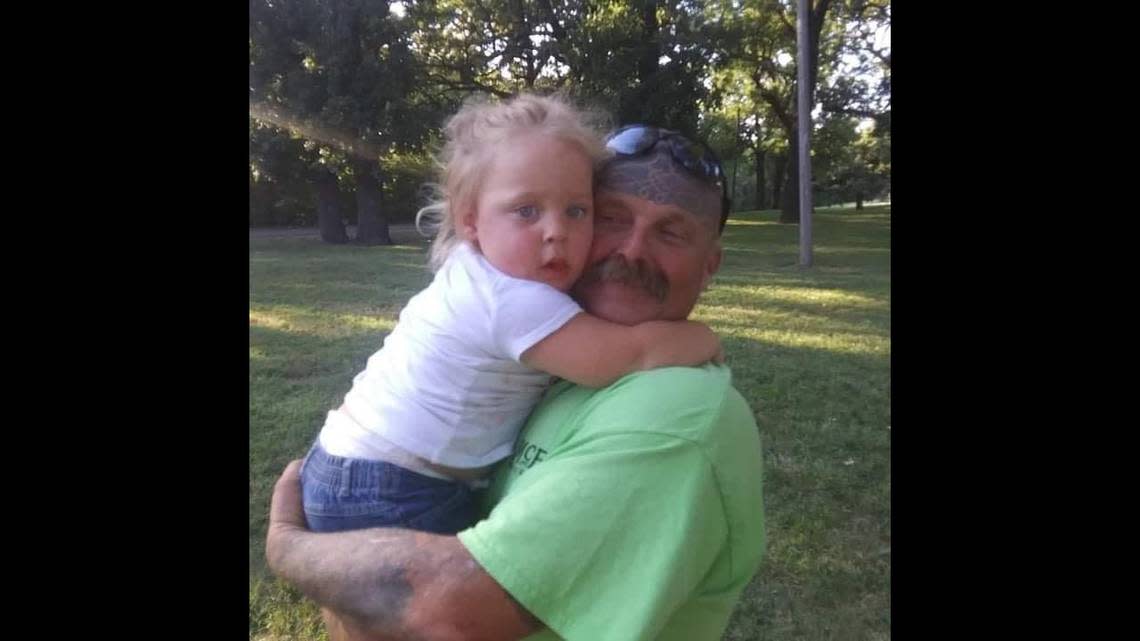‘Why do you want to know?’: How Kansas police agencies respond to body camera requests
The Star requested body camera policies and footage from dozens of law enforcement agencies in Kansas to learn how this tool for transparency is working in practice. We received varying responses, some of which made information difficult to obtain.
These were some of the responses we received after asking for police department policies:
The Lenexa Police Department charged a fee for their policy on body worn cameras. It was the only department out of 28 contacted by The Star to do so. On the other hand, six agencies post their policies online for anyone to see.
When asked for Labette County’s policy, Sheriff Darren Eichinger asked, “I’m curious, why do you want to know if we have body cameras, and why would you want a copy of our policy?”
Meade County Sheriff Doug Ritter said he had never received a public request for any policy before.
Records requests by the numbers
From 2019 through 2023, police officers in Kansas fatally shot 47 people across the state. Where recordings existed, officials denied public disclosure 67% of the time. The Star obtained recordings from 11 shootings. In several cases, the request was narrowed because there were multiple videos spanning several hours.
Chanute, Joplin, Olathe and Sedgwick County did not charge for the videos.
Recordings from Wichita cost $14 to $54. Goddard charged $30, Ness County charged $15, and Wellington charged $55.94.
Clips ranged from nine seconds to over 90 minutes.
“By releasing the videos, the agencies that have done so understand that there is a community expectation involved in how police investigations are conducted, particularly when someone dies as a result of state action and those agencies should be commended for their commitment to transparency,” said Max Kautsch, an attorney who focuses on open government.
The Kansas Department of Wildlife and Parks in Topeka and the Cowley County Sheriff’s Office in Winfield did not publicly release footage, but allowed a reporter to view the recordings in their offices.
Three agencies suggested asking the Kansas Bureau of Investigation, which is called in to investigate police shootings. On one of the three cases, the hard copy was stored offsite with the investigatory case file. The KBI charged $28 to retrieve the box.
All three requests were denied. In its Feb. 28 letter, the agency said, “The KBI does not normally release criminal investigation records,” except to other criminal justice agencies or by subpoena or court order.
It also said the agency had concerns that the videos’ release could reveal confidential investigative techniques or endanger the safety of a person.
Challenges for families of police shooting victims
By law in Kansas, footage is available to subjects of videos. In fatal shootings, family members, heirs and their attorneys can view recordings in person.
After Taylor Lowery, 33, was killed by five Topeka police officers on Oct. 13, 2022, some of his family members viewed recordings at the police department.
LaRonna Lassiter Saunders, an attorney for Lowery’s family, accompanied the mother of Lowery’s daughter to view the footage in late November 2022. At the time, the department told Saunders there could be more footage.
In January 2023, Saunders requested to re-review the videos as well as any new recordings. Topeka police Lt. John Sturgeon informed her it would cost $50 an hour.
Saunders emailed him back, saying she had concerns about the fee. While the statute allows a “reasonable” cost, she said she did not think most people would find $50 an hour reasonable. She also said it puts low-income citizens at a disadvantage.
They were allowed to view the footage again.
When asked about the cost, City of Topeka spokeswoman Rosie Nichols said, “There may be certain incidents where the city has the discretion to waive this fee due to the sensitivity of the situation for an initial viewing. This is fact specific. The city does not waive the fee for subsequent viewings of footage.”
The officers were cleared of criminal charges. The Shawnee County District Attorney’s 15-page report included screenshots from body camera recordings and surveillance videos, but body camera footage has not been publicly released.
Lauren Bonds, executive director of the National Police Accountability Project, said requiring $50 an hour to view footage, charging for the retrieval of footage an agency already knows is a criminal investigation record and requiring in-office viewing adds barriers that can erode community trust.
Different understandings of transparency
The Kansas City, Kansas, Police Department has had eight fatal police shootings in the past five years. One video was released in 2022. The department denied recent requests for the other seven.
That included the Feb. 3, 2023, shooting of John Anderton, 50. The department also declined to remotely play footage for an immediate family member of his who lives in California. Other family members drove from Iowa and Nebraska to view it, Bonds said.

Bonds said KCKPD scandals, including the wrongful conviction of Lamonte McIntyre and the federal indictment of former detective Roger Golubski for rape and sex trafficking, have “really undermined the community’s trust.”
“There’s just so many issues with this particular police department, you’d think they would be doing everything that they could in order to rebuild that trust and be transparent themselves,” Bonds said.
The Star wanted to learn more about how the police department determines which videos to release and emailed KCKPD spokeswoman Nancy Chartrand to arrange an interview with Police Chief Karl Oakman. After the March 1 interview, Chartrand in an email accused the reporter of not being transparent about what the interview was about and stressed the importance of transparency.
